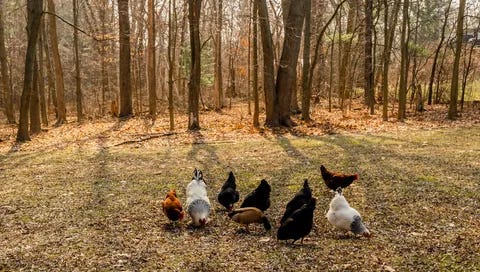Every day I tend my flock of nine: a large white Brahma rooster, seven hens (two Rhode Island Reds, four Jersey Giants, one Brahma) and, not to be forgotten, a Khaki Campbell drake who lost his siblings to a predator and, one cold night, joined the chickens in their coop and has been one of the flock ever since. (Our duck contributes nothing besides tai…
Keep reading with a 7-day free trial
Subscribe to The Kettle with Meagan Francis to keep reading this post and get 7 days of free access to the full post archives.





